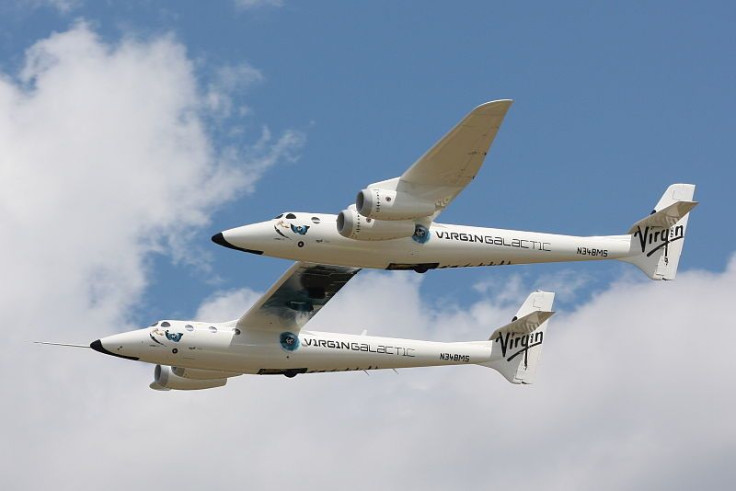After Virgin Galactic Crash And Orbital Sciences Explosion, Experts Encourage Space Industry To 'Stay The Course'

When Virgin Galactic's SpaceShipTwo rocket crashed in the California desert Friday, killing one pilot and injuring another, it revived questions that were being asked earlier this week when another rocket exploded: What does this mean for the commercial space industry?
Company and emergency officials speaking at a press conference after the crash at the Mojave Air and Space Port said it was too early to speculate on the cause of the action, saying it was an “anomaly” and that the entire industry's thoughts and prayers are with the families of the two pilots. The investigation is expected to last several days, with George Whiteside, chief executive of Virgin Galactic, saying “the future rests in many ways on hard days like this but we believe we owe it to the folks who were flying these vehicles as well as the folks who have been working so hard on them to move forward.”
Virgin Galactic said it was the SpaceShipTwo rocket's fourth powered test flight, but the first time it was using a rubber-based fuel rather than a fuel-based fuel. Again, an investigation into the cause of the accident is ongoing, with the families of the two pilots only being notified of the accident shortly before the accident.
“This was a pure test, this was not a public event, from my eyes and ears I detected nothing that appeared abnormal,” said Mojave Space Port CEO Stuart Whitt. “If there was a huge explosion I didn't see it.”
The sad news comes only days after a cargo rocket built by Orbital Sciences exploded in the air over the coast of Virginia Tuesday. The unmanned ship was meant to carry food, scientific equipment, mail and other supplies to the six astronauts on the International Space Station before it went up in flames six seconds after takeoff due to an engine malfunction. No one was hurt in the incident, but the accident cost Orbital an estimated $200 million while robbing the company of one of the eight launches it owes NASA under a 2008 contact worth $1.9 billion.
That event alone was enough to create questions for the insular world of commercial space innovation. Federal budget cuts have forced NASA to pass the innovation torch to private companies capable of raising the necessary funding necessary to send aircraft past the Earth's atmosphere. In the days after the Orbtial explosion, though, and hours after the Virgin Galactic tragedy, space professionals have maintained that serious accidents are one of the hazards of doing business.
“It hasn't been an easy week. It's certainly been a challenge but in my experience this is where you find your true character,” CEO Whitt said at Friday's news conference, ending with a message to his younger colleagues. “My message to them is to stay the course. This business is not easy ... but we're doing this for you and your generation.”
© Copyright IBTimes 2024. All rights reserved.











